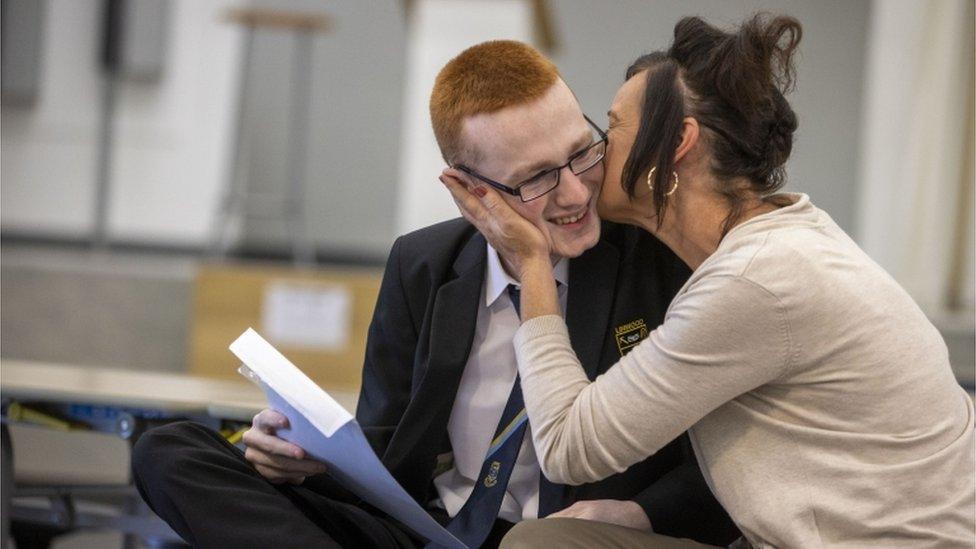Scotland's pupils begin first exams in three years
- Published
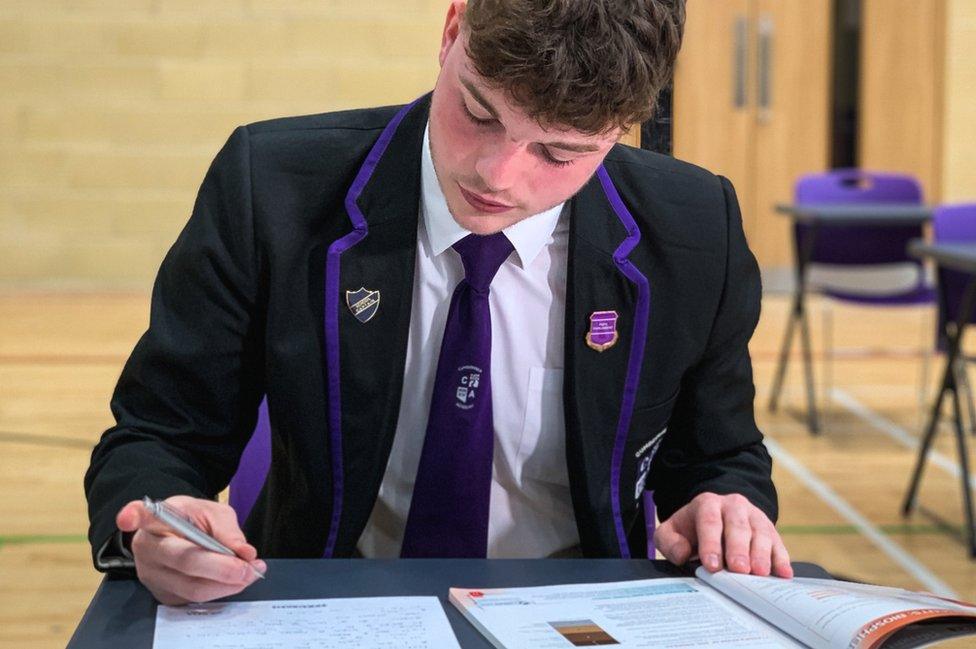
Euan from Cumbernauld Academy says these exams are like the ones his mum and dad sat
Heads are down in exam rooms across Scotland as the first exam diet in three years has begun.
SQA examinations have been disrupted since 2020, with pupils contending with teacher estimates, course work and in-school assessments instead.
From Tuesday 26 April until Wednesday 1 June, the full schedule of National 5, Higher and Advanced Highers will take place.
More than 128,000 candidates will sit assessments in the five-week period.
In 2020 the coronavirus pandemic led to the closure of schools and an abrupt end to the academic year.
Pupils moved to online learning and time was lost due to Covid illness.
Scottish Qualification Authority (SQA) exams were cancelled for the first time in history and coursework was not marked for National 5, Higher or Advanced Higher courses.
Instead, the exams body said teachers should use their professional judgement to estimate a grade and band for each pupil.

Aminah has never sat a formal exam but says teachers have prepared the pupils for what to expect
However, the system based on teacher assessments applied a moderation technique which led to about 125,000 estimates being downgraded.
Nicola Sturgeon ended up apologising after accepting the Scottish government "did not get it right".
In 2021 exams were cancelled again after a surge in Covid cases led to a second lockdown.
Grades were given on "teacher judgement" backed up by evidence gathered in tests.
But pupils said they were sitting "exams by another name" after some schools set numerous tests in conditions similar to exams, but with much less preparation.
More than 128,000 candidates will sit formal assessments this year and for most, it will be their first time sitting national exams.

Chloe says her year is feeling the pressure and everyone is talking about the change
Aminah, a 6th year pupil at Cumbernauld Academy in North Lanarkshire, told BBC Scotland that she had never sat a formal exam.
She will be tackling Advanced biology, Advanced maths and Higher psychology.
She said: "It's a lot of pressure, purely because it is our last year and we won't get a chance to try again.
"I was a wee bit scared because we haven't done anything like that. These exams do feel a bit different because they are just based on the exam paper they re not going to take into consideration what we've done through the year, so that's a lot of pressure, a lot is riding on it."
'Old classic way'
Fellow S6 pupil Euan is studying for Higher geography, Higher business and Advanced Higher maths.
"It was a bit weird when the exam timetable came out in September," he said. "It hit me that I was going to have to actually sit exams this year. There's a wee bit of nerves about it. This time it's serious and there is definitely a bit more nerves.
"This is the old classic way that your mum and dad told you about where you came and sat in an exam hall."
Student Chloe will sit higher psychology, higher RMPS (Religious, Moral and Philosophical Studies), and advanced higher English.
"Our teachers explained the process to us. These feel a bit more daunting compared to the kind of exams we have sat before.
"I think I prefer the way we've been doing it the last couple of years where we have gathered loads of evidence throughout the year with class assessments and prelims to get our grades rather than one final exam it all comes down to. I feel having lots of evidence built up gives us a safety net.
"It feels like a lot of pressure. It's been built up and all around school everyone is talking about this."
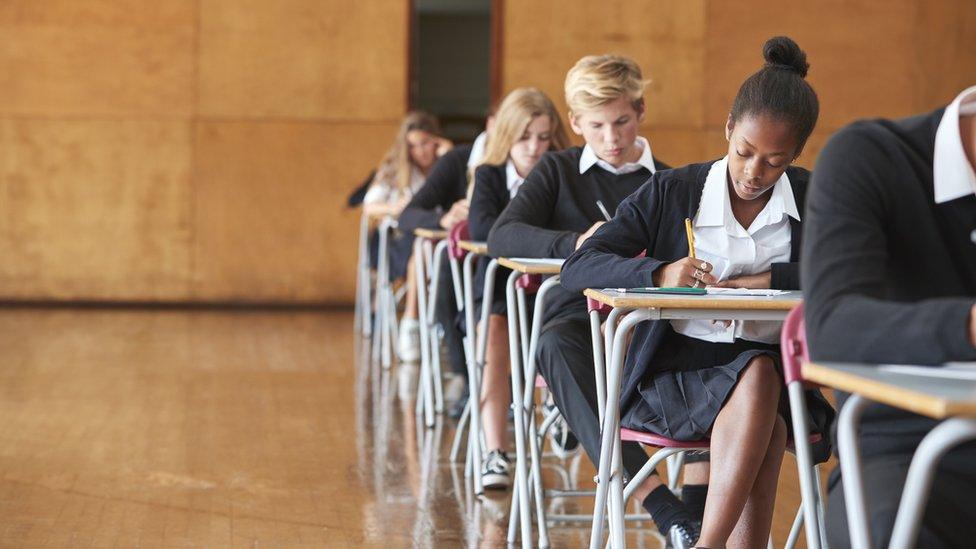
For the last two years, exams as we know them have been cancelled
More than two million question papers have been sent to more than five hundred schools, colleges, and training providers that are being used as exam venues.
SQA exams will also be held in the USA, Croatia, Israel and The Netherlands, as special arrangements have been put in place to accommodate candidates who are representing their country at the time of their exams.
Results day is on Tuesday 9 August.
Fiona Robertson, the SQA's chief executive, and Scotland's chief examining officer, said: "I wish all learners the very best as they prepare to sit their exams and complete their assessments.
"I also pay tribute to the professionalism of Scotland's teachers and lecturers. Their work, and that of their colleagues, plays a vital role in enabling our young people to achieve qualifications they deserve."
Related topics
- Published27 October 2021
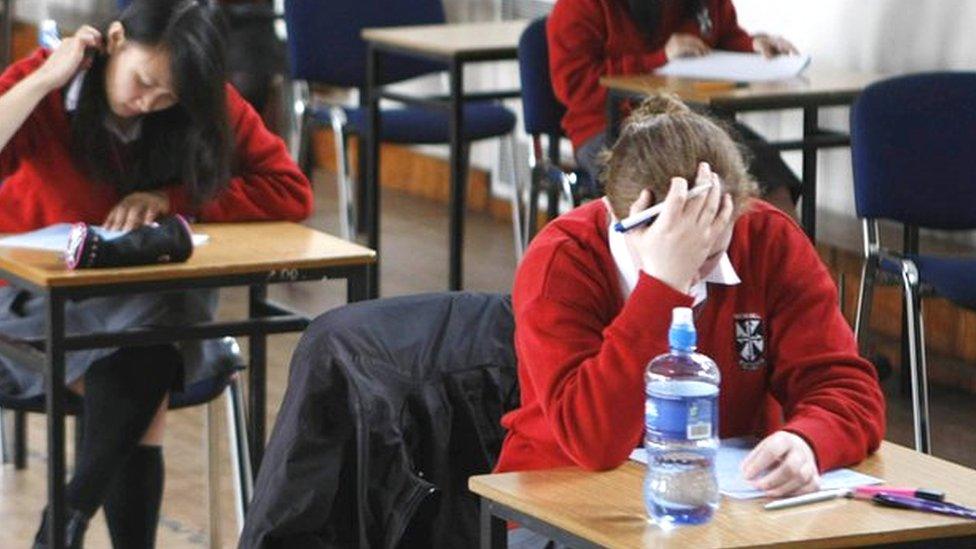
- Published9 March 2022
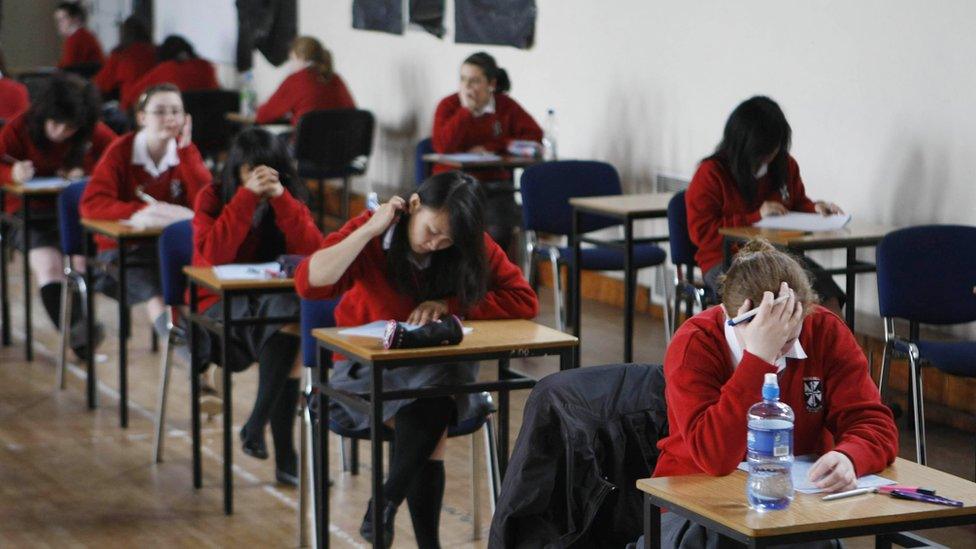
- Published11 January 2022
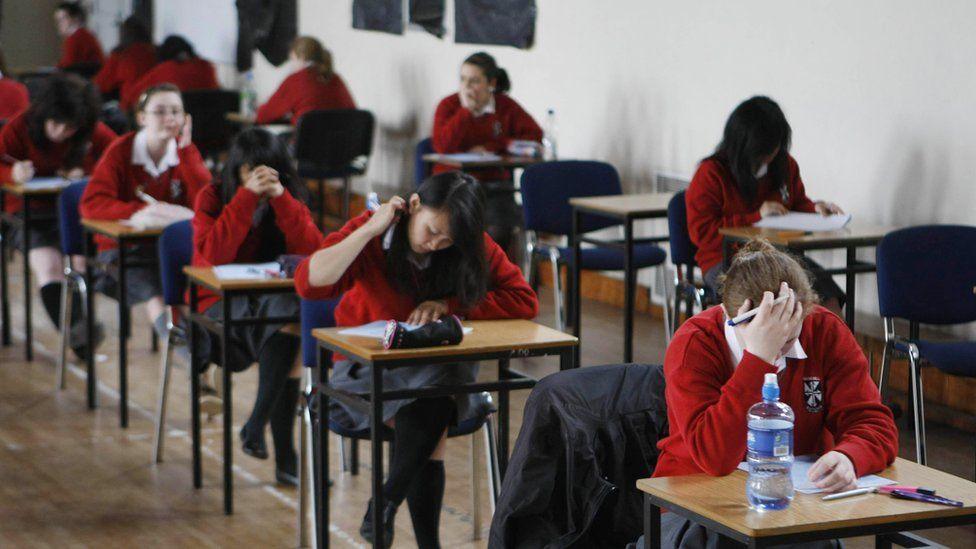
- Published1 April 2021
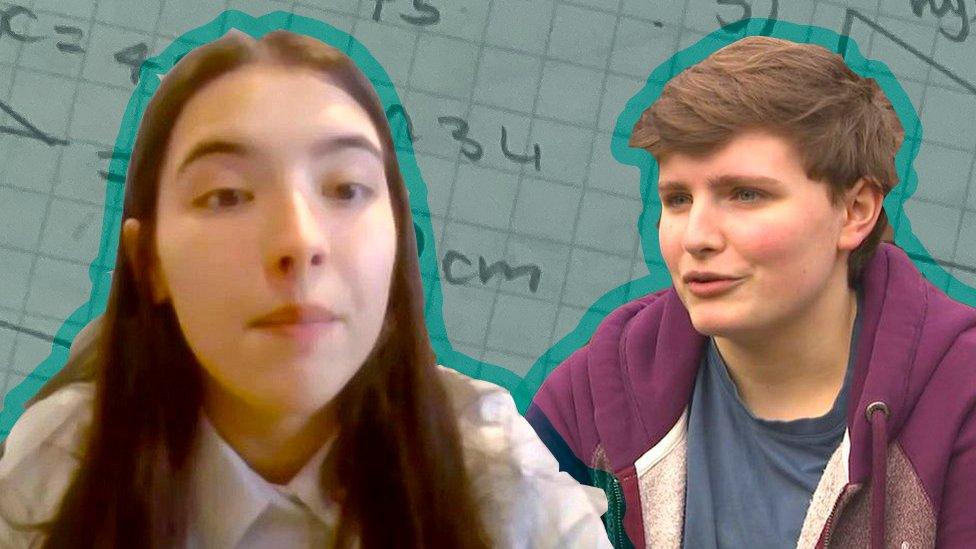
- Published4 August 2020
